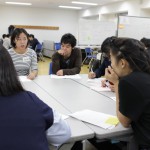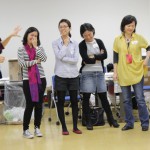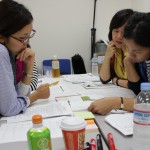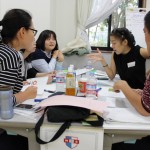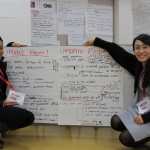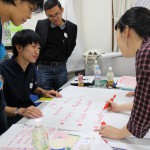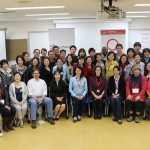NGO Leaders Attend Humanitarian Response Workshop
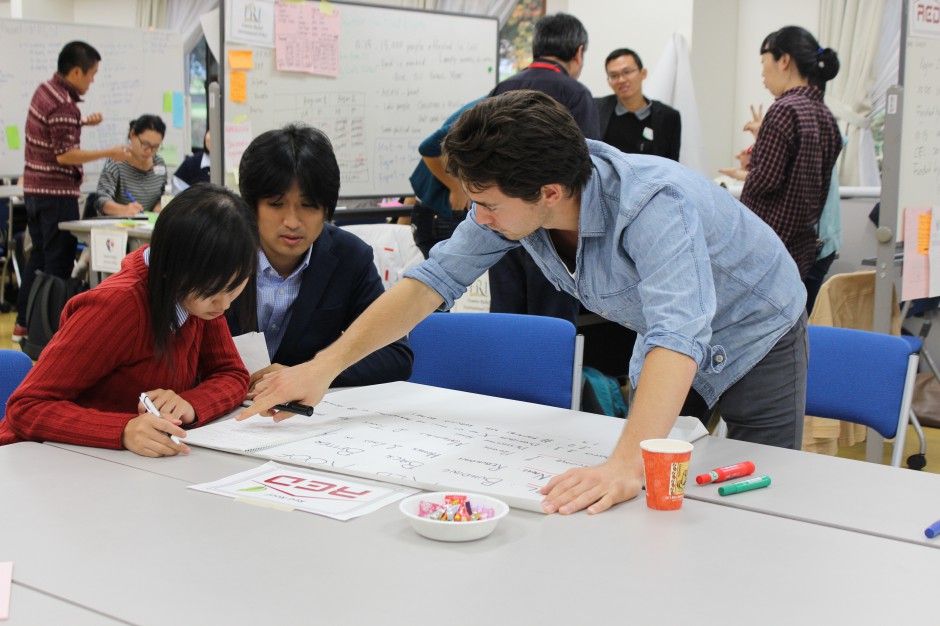
From October 27 to 31, 2014, the Humanitarian Response Workshop – part of the TOMODACHI NGO Leadership Program supported by J.P. Morgan – was held at the National Women’s Education Center in Saitama, Japan. Various NGO leaders from Japan, China, Taiwan and Korea committed to disaster response, gathered to learn new skills and build upon their knowledge of various topics. Q&A (Quality and Accountability), Security Management, Monitoring, and Evaluation were just some of the topics that were addressed with the goal of building networks amongst participating NGOs and NPOs for future incidences that will call upon their expertise in disaster response.
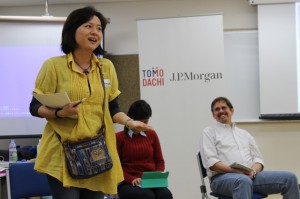 The workshop incorporated simulations and role playing that had the program participants utilize their lessons from earlier in the week and put it into action. Ms. Miho Nakajima, Program Officer at Wakachiai Project said, “the program’s holistic approach enabled me to gain new skills, including new trends such as the concept of cash transfers. It engaged me to new knowledge closely related to my expertise that I otherwise would have had no exposure to. I am very satisfied with what I was able to learn in such a short period of time.”
The workshop incorporated simulations and role playing that had the program participants utilize their lessons from earlier in the week and put it into action. Ms. Miho Nakajima, Program Officer at Wakachiai Project said, “the program’s holistic approach enabled me to gain new skills, including new trends such as the concept of cash transfers. It engaged me to new knowledge closely related to my expertise that I otherwise would have had no exposure to. I am very satisfied with what I was able to learn in such a short period of time.”
The simulation training engaged the participants in a practical training on a hypothetical case. The staff played the role of the government, international organizations, and local NGOs and the participants were divided up into six groups of NGOs that were asked to provide support to a hypothetical country suffering from floods and landslides. Ms. Sarajean Rossitto, who works as a nonprofit NGO consultant in Tokyo, says that “in the simulation session, she saw each organization trying their best to fulfill their own goals. As a result, however, the organizations rushed to the disaster-hit local communities seeking for information and needs.” Although some organizations were beginning to realize that fact, Ms. Rossitto pointed out that third parties could provide the NGO organization the necessary needs of the disaster-hit communities, instead of having each organization directly reaching the communities. Furthermore, she indicated that “the NGOs must communicate amongst themselves on a daily basis for a more proficient NGO collaboration.” This session not only brought the NGOs together, but it also opened people’s eyes to a more efficient collaboration of humanitarian responses in Japan.
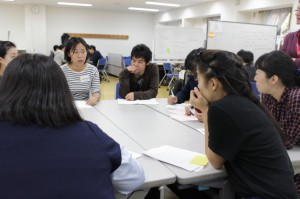 The training highlighted the importance of sharing information and the need for cooperation among the NGOs, who were provided with different aims and goals to focus on as an organization – from locking down food and medical supplies to creating housing and protecting women and children. There are various needs when a disaster strikes, all of which seeking immediate response, but through this workshop the NGO leaders confirmed the need for good communication and cooperation among all parties involved.
The training highlighted the importance of sharing information and the need for cooperation among the NGOs, who were provided with different aims and goals to focus on as an organization – from locking down food and medical supplies to creating housing and protecting women and children. There are various needs when a disaster strikes, all of which seeking immediate response, but through this workshop the NGO leaders confirmed the need for good communication and cooperation among all parties involved.
This week-long training not only provided the next generation of NGO leaders with the knowledge to react quickly and skillfully in the face of disaster, but it also provided them with the opportunity to meet and network and build close relationships with one another. It has surely contributed to the future of disaster relief activities and to nurturing the next generation of NGO leaders that work collaboratively in Japan, Asia and the rest of the world.


